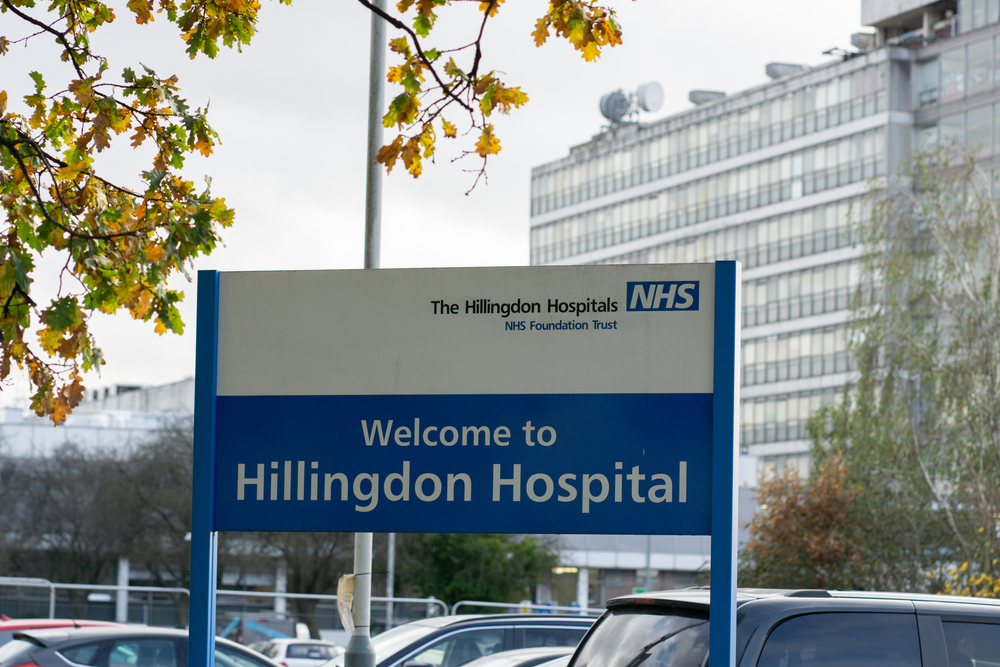The Labour Party has committed to meeting the Conservatives New Hospital Programme which promises 40 new hospitals by 2030.
This includes the rebuilding of four hospitals in London should the party form the new government after the general election on 4 July.
According to a report in The Evening Standard, the hospitals that Labour intends to rebuild include the Hillingdon Hospital (pictured), St Mary’s Hospital, Whipps Cross University Hospital and Charing Cross Hospital as part of its plan to get the NHS back on its feet.
Those London hospitals are a part of the 40 new hospitals which the Conservatives had promised to rebuild as a part of their 2019 general election campaign.
In May 2023 then health secretary Steve Barclay announced details of the government’s hospital programme that would deliver on the Conservatives 2019 New Hospital Programme.
The Evening Standard said Labour has warned that contracts for the New Hospitals Programme put out to tender by the government this year extend to 2035, claiming the Conservatives are planning for a five-year delay.
But The Evening Standard reported that shadow health secretary Wes Streeting said: “Only Labour has a plan to deliver the change our NHS needs. We are committed to delivering the New Hospitals Programme, including The Hillingdon Hospital, St Mary’s Hospital, Whipps Cross University Hospital and Charing Cross Hospital.”
Crumbling buildings
Responding to the news that the Labour Party will honour the government’s pledge to build 40 new hospitals, Anita Charlesworth, director of research and the REAL Centre at the Health Foundation, said: “Labour’s pledge to honour the government’s programme to build new hospitals in areas where they are needed is welcome.
“However, on its own, this won’t deliver the improved productivity and capacity the NHS desperately needs.
“Capital investment in the UK has been woefully inadequate, leaving the NHS with crumbling buildings, a lack of capacity, low numbers of essential kit like scanners and underdeveloped IT systems.
“Over the last decade, the UK would have needed to invest an additional £33bn in buildings, equipment and infrastructure to have matched EU levels of investment.
“The next government will need to commit to sustained, long-term investment and a once-in-a-generation capital settlement to address the NHS’s crumbling infrastructure.”
Crying out for capital investment
Sarah Woolnough, CEO of The King’s Fund, said: “Across every corner of England, many parts of the NHS estate are crying out for capital investment.
“There is a £12.4 billion maintenance backlog for NHS buildings and equipment, and the result is multiple IT failures, flooded corridors, dangerous roofs, unreliable diagnostic equipment and substandard layouts that create overcrowding in A&E departments.
“Staff are left trying to deliver a 21st century health service out of a 19th century estate.
“The New Hospital Programme is the most significant recent policy to address these issues, and it is positive to see Labour pledge to continue progressing the programme if elected.
“What we are yet to see is the Labour Party’s details on timelines for delivery and how it will be funded, especially since some plans underway are already over budget.
“The sites earmarked for the New Hospital Programme are mostly acute hospital buildings.
“Yet, the mental health estate is some of the oldest within the NHS, with 18% constructed before the NHS was formed in 1948 and multiple sites classified as not suitable for the patients they serve.
“Similarly, it is reported that an estimated one in five of England’s GP premises pre-date 1948 yet they are outside the scope of this programme.
“The NHS is also still discovering the full impact of Reinforced Autoclaved Aerated Concrete (RAAC), which makes buildings structurally unsound.
“Beyond the New Hospital Programme, after multiple years of capital budgets being raided to prop up day-to-day spending in the NHS, it will be crucial that whichever party wins the election, they also commit to a multi-year capital settlement to address the issues facing the health and care estate, rather than simply relying on short term plugs.
“In the long term, future capital funding should be directed into improving the primary care and community estate as part of a comprehensive plan to refocus the health and care system towards primary and community care to create a more effective and sustainable NHS.”
